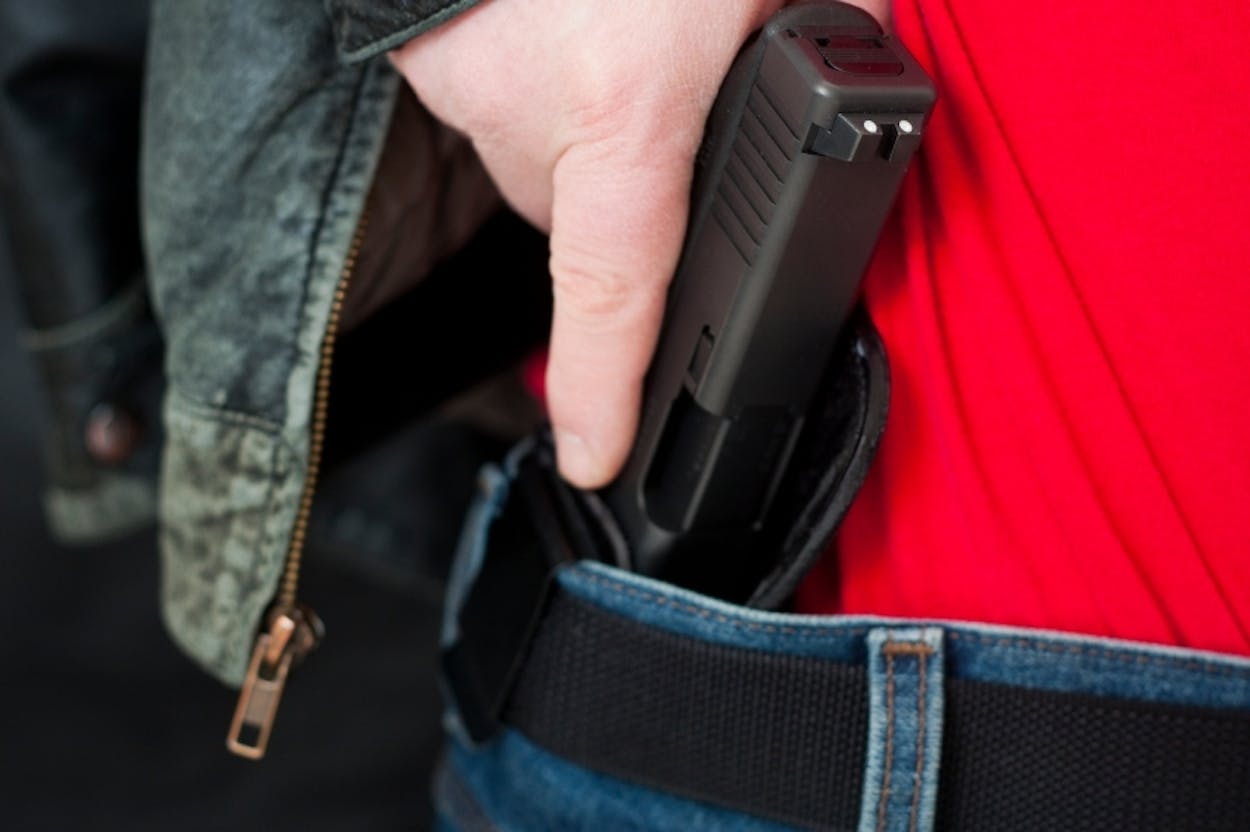A new Texas A&M study indicates that “castle laws” intensify violence rather than accomplish their intended purpose, which is to deter crime.
College Station-based economics professor Mark Hoekstra conducted an empirical study using statewide crime data from 2000-2009 FBI Uniform Crime Reports and compared the states with castle laws against the crime rates of “non-adopting states over the same period.” Hoekstra and his graduate student Cheng Cheng found evidence that up to fifty “additional justifiable homicides” occur per year as a result of “castle” doctrine. Justifiable homicide is defined as “the killing of a felon, during the commission of a felony, by a private citizen.” In states without castle laws, homicide rates stayed the same over time. The results of the study are pretty damning for proponents of the castle laws:
We find no evidence of deterrence; burglary, robbery, and aggravated assault are unaffected by the laws. On the other hand, we find that murder and non-negligent manslaughter are increased by 7 to 9 percent. This could represent either increased use of lethal force in self-defense situations, or the escalation of violence in otherwise non-lethal situations. Regardless, the results indicate that a primary consequence of strengthening self-defense law is increased homicide.
“Our study makes no judgement as to whether these laws are in some sense good or bad. Rather, the main finding is that the laws result in more homicides,” Hoekstra said.
Hoekstra’s findings seem especially timely right now as so-called “stand your ground” laws have been thrust into the national spotlight with the shooting death of Trayvon Martin, the unarmed seventeen-year-old Florida teen who was killed by a neighborhood watch member as the teen walked from a convenience store in February.
Florida was the first state to enact a “stand your ground” law in 2005. Some 22 other states followed suit, including Texas, in September 2007. Under the law, a person attacked in his home, workplace, or vehicle does not have a “duty to retreat” before using deadly force, so long as the person does not provoke his attacker and is not involved in criminal activity himself. (Texans have long had the right to stand their ground inside their homes.) In April, Edward Garris unpacked Texas’s castle doctrine at Burnt Orange Report.
Several months after the Texas law went into effect, Joe Horn, a Pasadena man, named referenced the law during a call with a 911 dispatcher. Horn said he had a gun and disregarded the dispatcher’s repeated instructions not to interfere with two men burglarizing his neighbor’s home. Horn killed both men with his shotgun, claiming self-defense, and was never arrested. Another Texas man who recently invoked the castle doctrine in his defense was not as lucky: earlier this week Huffman resident Raul Rodriguez was convicted of murder for gunning down a man, Kelly Danaher, after complaining about a noisy house party. During the 2010 incident, Rodriguez, a retired fire fighter, told the dispatcher “I’m standing my ground here. Now these people are going to go try and kill me.” Rodriguez could receive up to life in prison for his crime.
Texas representative Garnet Coleman said in the wake of the Trayvon Martin shooting that he would push for an amendment to the state’s castle doctrine.
“A young life has been lost in Florida, and we don’t need to see the same happen in Texas,” Coleman said in a letter to constituents, according to the Dallas Morning News. “The Texas Castle Doctrine too freely gives license to use deadly force based on subjective assumptions, and needs to be corrected.”
Hoekstra’s research, published by the National Bureau of Economic Research, found that states with castle laws see five hundred to seven hundred more homicides annually. He notes that the increase in homicides could be because of “the increased use of lethal force in self-defense situations, or to the escalation of violence in otherwise non-lethal conflicts.”
Hoekstra told the TM Daily Post he is open to improving and expanding his study as comments come in. “We would be most proud if this paper were to be used in the future as an example of a careful, thorough, and transparent analysis of a controversial issue,” he said.
The Philadelphia Inquirer‘s editorial board slammed the laws, declaring that “one man’s ‘castle’ law is another’s coffin.” The expansion of the castle doctrine, coupled with looser restrictions on carrying guns, prove a deadly combination: “A road-rage incident or tavern quarrel that might have led to a scuffle may now erupt in gunfire, with the last man standing claiming a right to shoot because he felt threatened,” the board wrote.
The entire study can be found here.






